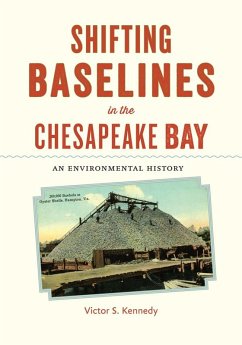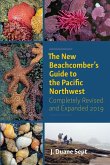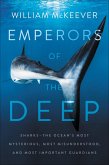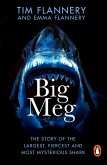This environmental history of America's largest estuary provides insight into how and why its former productivity and abundant fisheries have declined.The concept of "e;shifting baselines"e;-changes in historical reference points used in environmental assessments-illuminates a foundational challenge when evaluating the health of ecosystems and seeking to restore degraded wildlife populations. In this important book, Victor S. Kennedy examines the problem of shifting baselines for one of the most productive aquatic resources in the world: the Chesapeake Bay.Kennedy explains that since the 1800s, when the Bay area was celebrated for its aquatic bounty, harvest baselines have shifted downward precipitously. Over the centuries, fishers and hunters, supported by an extensive infrastructure of boats, gear, and processing facilities, overexploited the region's fish, crustaceans, terrapin, and waterfowl, squandering a profound resource. Beginning with the colonial period and continuing through the twentieth century, Kennedy gathers an unparalleled collection of scientific resources and eyewitness reports by colonists, fishers, managers, scientists, and newspaper reporters to create a comprehensive examination of the Chesapeake's environmental history.Focusing on the relative productivity and health of its fisheries and wildlife and highlighting key species such as shad, oysters, and blue crab, Shifting Baselines in the Chesapeake Bay helps readers understand the remarkable extent of the Bay's natural resources in the past so that we can begin to understand what has changed since, and why. Such knowledge can help illustrate the Bay's potential fertility and stimulate efforts to restore this pivotal maritime system's ecological health and productivity.
Dieser Download kann aus rechtlichen Gründen nur mit Rechnungsadresse in A, B, BG, CY, CZ, D, DK, EW, E, FIN, F, GR, HR, H, IRL, I, LT, L, LR, M, NL, PL, P, R, S, SLO, SK ausgeliefert werden.









